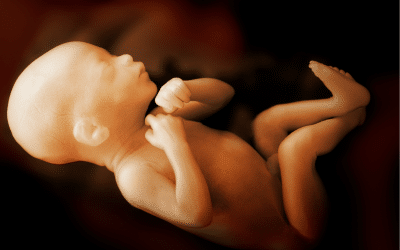Alain Cocq, a 57-year-old Frenchman, has been fighting a courageous battle against a rare and incurable disease, which has made him severely disabled. In an attempt to publicly pressure French President Emmanuel Macron, he recently wrote an open letter requesting assisted suicide “based on compassion”.
On August 25, along with Jean-Luc Romero, President of the pro-euthanasia association (“ADMD”: The Right to Die in Dignity), Alain Cocq was able to express his concerns to Macron’s advisors in a telephone meeting.
President Macron replied that: “Because I am not above the law, I cannot grant your request”. Thereafter, on September 4, Alain Cocq announced that he would stop all food and drink until his death and begin broadcasting daily live-stream videos on Facebook, thereby provoking a controversy. As an activist for euthanasia, he hoped the media coverage would lead to a change in the Claeys-Leonetti law, which he qualifies as inhuman.
The next day, on September 5, a Facebook spokesperson announced in a press release that the video broadcast of Alain Cocq’s last moments had been blocked, declaring: “Although we respect his desire to draw attention to this complex issue, our experts have advised us to block Alain’s live-streaming since our company policy does not allow portrayal of suicide attempts”.
After three days without food nor water, Alain Cocq finally requested to be admitted to the Dijon University Hospital on the evening of September 7, where he also accepted palliative care. In view of his weakened condition, some euthanasia supporters suspected that he had been coerced. But Mr. Cocq confirmed that he had indeed asked for both nutrition and palliative care. He explained: “I was suffering too much, I would not have died in peace under these conditions”. On September 9, after resuming food and drink, he affirmed: “I should be able to go home in 10 days, maybe 15; the time to recover and to set up home hospital services. “
According to palliative care specialists, it is not unusual to see this kind of volte-face.
As president of the French Society for Counseling and Palliative Care (“SFAP”), Claire Fourcade has observed the complexity of patients and their ambivalence when faced with suffering and death. “It is an everyday occurrence for patients to change their minds; and it is provided for by the law. Palliative care means customizing patient care on a case-to-case basis, every day”. For example, caregivers have observed patients who refuse their IV infusion in the morning but accept it a few hours later. When experiencing critical pain or anxiety, patients may sometimes ask to die. But once they have been listened to, and their needs have been met, they may change their minds. Alliance VITA’s General Delegate, and spokesperson for Relieve Pain Without Killing, Tugdual Derville commented in a Tweet:
“Never be lured into a fatal snare by taking a person literally if he expresses a wish to die. Always consider a person as being worthy, worthy of being cared for and loved, with the potential to change his mind, even if it means rescinding his own promise. “
Nonetheless, Alain Cocq maintains his commitment to fight for a modification in the end-of-life law in France, in a different manner.
Dr. Bernard Debré, professor, and member of the National Consultative Committee on Ethics (“CCNE”), published an editorial criticizing the “euthanasia activists [who] pretend not to see what already exists to help patients at the end-of-life”. According to him the most important thing is to allow for a dialogue between the patient, his doctor and his family.
Although Alain Cocq’s case is unique, the extensive media coverage reminds us of other poignant cases in France that have sparked debates among citizens and swayed public opinion. Tugdual Derville investigates seven cases in his book “The Battle of Euthanasia” (Salvator Editions).



